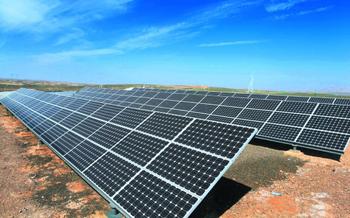 The National Energy Administration has announced that it is currently working on a "Renewable Energy Heating Implementation Plan," which aims to promote sustainable heating solutions across China. The initiative focuses primarily on solar, geothermal, and biomass energy as key heating technologies, with plans to introduce these systems within the next year. According to an initial draft of the plan, by 2015, renewable energy sources like solar power are expected to replace approximately 50 million tons of standard coal in power generation, increasing to 100 million tons by 2020. Currently, this capacity has already surpassed 30 million tons.
In addition, the plan emphasizes shifting the development of the light and heat industry from household applications to large-scale engineering projects. While the sector is still largely dominated by solar water heaters, the future direction is moving toward more industrialized and commercial uses. To support this transition, the government is offering subsidies, tax incentives, and other policy measures aimed at encouraging energy efficiency and emission reduction. These policies are seen as critical for driving long-term growth in the sector.
According to data from Zero2IPO, between 2006 and 2012, there were 272 investment cases in the Chinese new energy industry, with 221 of them disclosing specific investment amounts totaling $5.796 billion. The year 2009 marked the highest level of investment in the sector’s history, followed by a similar peak in 2010. However, after a sharp increase in 2011, the investment levels dropped significantly in 2012 due to the ongoing economic slowdown. This led to a dramatic decline, bringing investment back to the 2007 level, with a nearly 50% drop compared to the previous year. The number of investment deals also fell sharply, pushing the total investment down to the 2008 level.
Today, photovoltaic companies are facing challenges both internally and externally, including low demand and market volatility. However, the development of the photovoltaic industry is opening up new opportunities for growth. Looking ahead, the shift from residential to large-scale engineering applications will play a major role in shaping the industry. Government policies such as the "universal design and uniform installation" approach for solar hot water systems have made mandatory installation a reality in many regions, reinforcing the commitment to renewable energy adoption.
Technological advancements are also breaking through traditional barriers, such as the limitations of high-rise buildings in installing solar panels. This progress is paving the way for greater integration of solar technology into building designs. With continued policy support and innovation, the engineering market for solar and renewable energy is expected to grow rapidly in the coming years.
The National Energy Administration has announced that it is currently working on a "Renewable Energy Heating Implementation Plan," which aims to promote sustainable heating solutions across China. The initiative focuses primarily on solar, geothermal, and biomass energy as key heating technologies, with plans to introduce these systems within the next year. According to an initial draft of the plan, by 2015, renewable energy sources like solar power are expected to replace approximately 50 million tons of standard coal in power generation, increasing to 100 million tons by 2020. Currently, this capacity has already surpassed 30 million tons.
In addition, the plan emphasizes shifting the development of the light and heat industry from household applications to large-scale engineering projects. While the sector is still largely dominated by solar water heaters, the future direction is moving toward more industrialized and commercial uses. To support this transition, the government is offering subsidies, tax incentives, and other policy measures aimed at encouraging energy efficiency and emission reduction. These policies are seen as critical for driving long-term growth in the sector.
According to data from Zero2IPO, between 2006 and 2012, there were 272 investment cases in the Chinese new energy industry, with 221 of them disclosing specific investment amounts totaling $5.796 billion. The year 2009 marked the highest level of investment in the sector’s history, followed by a similar peak in 2010. However, after a sharp increase in 2011, the investment levels dropped significantly in 2012 due to the ongoing economic slowdown. This led to a dramatic decline, bringing investment back to the 2007 level, with a nearly 50% drop compared to the previous year. The number of investment deals also fell sharply, pushing the total investment down to the 2008 level.
Today, photovoltaic companies are facing challenges both internally and externally, including low demand and market volatility. However, the development of the photovoltaic industry is opening up new opportunities for growth. Looking ahead, the shift from residential to large-scale engineering applications will play a major role in shaping the industry. Government policies such as the "universal design and uniform installation" approach for solar hot water systems have made mandatory installation a reality in many regions, reinforcing the commitment to renewable energy adoption.
Technological advancements are also breaking through traditional barriers, such as the limitations of high-rise buildings in installing solar panels. This progress is paving the way for greater integration of solar technology into building designs. With continued policy support and innovation, the engineering market for solar and renewable energy is expected to grow rapidly in the coming years.Closed End Blind Rivets,Closed End Pop Rivets,Closed End Aluminum Rivets,Aluminum Closed End Pop Rivets
TIANCHANG FASTENER SYSTEM CO..LTD , https://www.toprivet.com